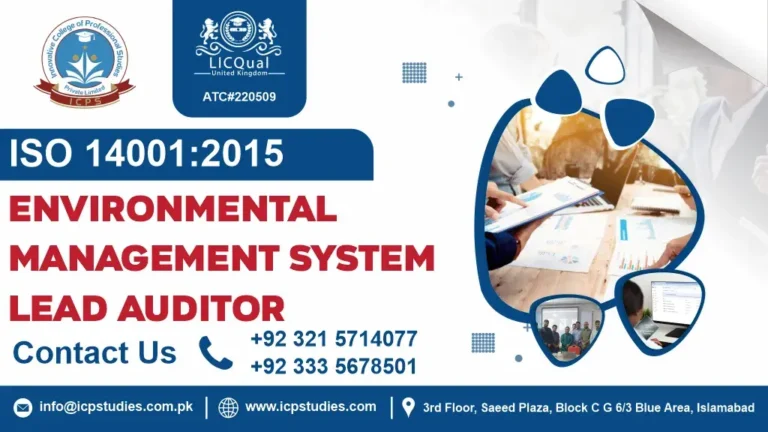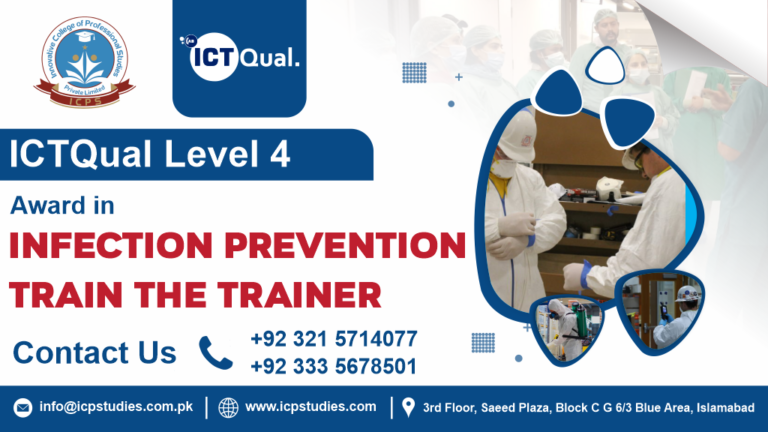In the ever-evolving landscape of occupational safety, ensuring the well-being of your workforce is paramount. Enter the AOSH UK Job Safety Analysis (JSA) – a beacon of innovation and a catalyst for a safer, more secure work environment. Today, let’s delve into the transformative power of the AOSH UK JSA and discover how it’s reshaping the way organizations approach job safety.
Imagine a tool that not only identifies potential hazards but actively transforms them into opportunities for enhanced safety. That’s precisely what the AOSH UK JSA does. It goes beyond the conventional scope of safety analysis, offering a dynamic and comprehensive approach to fortify workplace safety protocols.
At its core, the AOSH UK JSA is more than just a safety analysis tool – it’s a strategic investment in the vitality of your workplace. By decoding the intricacies of job safety, this innovative solution engages your workforce in a collaborative effort. It encourages a shared responsibility for safety, fostering a culture where every team member is not just compliant but actively contributing to a secure environment.
The AOSH UK JSA is your trusted ally in navigating the complexities of job safety. Picture a workplace where safety is not merely a checkbox on a list but an integral part of the organizational DNA. This transformative tool empowers your team to co-create safety protocols, ensuring they are not just imposed but embraced with a collective sense of ownership.
As you embark on this journey towards workplace safety excellence, let the AOSH UK JSA be your guiding light. Elevate your safety standards, engage your workforce, and witness the positive ripple effect throughout your organization. It’s time to turn job safety into a proactive, collaborative, and empowering endeavor with the AOSH UK Job Safety Analysis. Your pathway to a safer, more resilient workplace begins here!
All About AOSH UK Job Safety Analysis
Course Overview
Step into the dynamic realm of workplace safety with the AOSH UK Job Safety Analysis (JSA) as your guiding star. This isn’t merely a tool; it’s a beacon illuminating the path to a workplace that prioritizes well-being and resilience. Imagine a potent instrument that not only identifies potential hazards but also transforms them into opportunities, fostering a work environment that is not just secure but thriving.
Consider the AOSH UK JSA your steadfast ally, unraveling the intricacies of job safety with precision and care. It goes beyond the ordinary, offering a comprehensive approach that invites your workforce into a collaborative journey to enhance safety standards. This is more than just an analysis; it’s a strategic investment, infusing vitality into the very fabric of your workplace.
Envision a workplace where safety is not just a checkbox but a shared responsibility and a culture embraced by all. The AOSH UK JSA is meticulously designed to empower your team, nurturing a culture where safety protocols are not imposed but co-created with the collective wisdom of your workforce.
Embark on a transformative journey into the heart of occupational safety with the AOSH UK Job Safety Analysis as your compass. It transcends mere risk mitigation; it shapes a narrative of vigilance, collaboration, and a commitment to excellence. Elevate your workplace safety standards, engage your team, and pave the way for a future where your organization thrives securely. The AOSH UK JSA is not just a tool; it’s the catalyst for a safer, more resilient work environment. Your quest for workplace safety excellence begins now!
Learning Outcomes
- Enhanced Hazard Recognition: Participants will develop a heightened ability to identify and assess potential hazards within various job tasks and work environments. The training equips individuals with the skills to recognize both common and nuanced safety risks.
- Strategic Risk Assessment: Learners will acquire proficiency in conducting strategic risk assessments using the Job Safety Analysis methodology. This includes the ability to prioritize and evaluate risks systematically, ensuring a thorough understanding of potential consequences.
- Effective Communication of Safety Protocols: The program emphasizes the importance of clear and concise communication regarding safety protocols. Participants will learn how to effectively communicate identified risks, preventive measures, and emergency procedures to ensure a shared understanding among team members.
- Collaborative Safety Culture: The training encourages the cultivation of a collaborative safety culture within the workplace. Participants will understand the significance of engaging the entire workforce in safety initiatives, fostering a collective responsibility for maintaining a secure work environment.
- Practical Implementation of Safety Measures: The AOSH UK JSA equips individuals with practical skills to implement safety measures effectively. This includes the ability to integrate safety protocols into daily tasks, promoting a proactive approach to minimizing risks and hazards.
- Continuous Improvement Strategies: Participants will learn the importance of ongoing evaluation and improvement of safety procedures. The training instills a mindset of continuous improvement, empowering individuals to adapt safety measures based on evolving workplace dynamics and emerging risks.
- Compliance with Regulatory Standards: The program ensures participants have a clear understanding of relevant occupational safety regulations and standards. This knowledge enables organizations to align their safety practices with legal requirements, reducing the risk of non-compliance.
- Empowerment for Proactive Problem Solving: The AOSH UK JSA fosters problem-solving skills in the context of safety. Participants will be empowered to proactively identify, analyze, and address potential safety challenges, contributing to a resilient and adaptive safety framework.
- To enroll in the AOSH UK Job Safety Analysis course, candidates typically need to meet the following entry requirements:
- Minimum Age: Candidates must be at least 16 years old.
- Educational Background: No specific prior qualifications are required; however, a basic understanding of health and safety principles is beneficial.
- Work Experience: While not mandatory, experience in a workplace environment where health and safety assessments are conducted is advantageous.
- Language Proficiency: Proficiency in English is essential, as all course materials and assessments will be conducted in English.
- Commitment to Learning: Candidates should be prepared to actively engage in the course, complete assessments, and participate in discussions about job safety analysis processes.
- These entry requirements ensure that participants are well-prepared to understand and apply job safety analysis techniques effectively in their workplace settings.
- 4o mini
The AOSH UK Job Safety Analysis course is designed for a variety of professionals who are involved in assessing and improving workplace safety. This course is ideal for:
- Supervisors and Managers: Individuals responsible for overseeing operations and ensuring that safety procedures are effectively implemented.
- Health and Safety Officers: Professionals dedicated to maintaining and improving health and safety standards within their organization.
- Workers in High-Risk Environments: Employees who perform tasks that involve potential hazards and need to understand how to analyze and mitigate risks.
- Safety Representatives: Individuals tasked with promoting safety and health practices among employees.
- Human Resources Professionals: HR personnel involved in training and development, particularly related to safety policies and practices.
- Safety Trainers: Those who conduct training sessions on workplace safety and need a solid understanding of job safety analysis techniques.
By completing this course, participants will gain valuable skills in identifying hazards, assessing risks, and implementing effective safety measures, helping to create a safer work environment for all.
4o mini
Key Takeaways
Study Units
1. Introduction to Job Safety Analysis (JSA):
- Overview of JSA principles and significance in occupational safety.
- Historical context and evolution of job safety analysis.
- Understanding the legal and regulatory framework related to JSA.
2. Fundamentals of Occupational Safety:
- Core principles of occupational safety.
- Identification and classification of workplace hazards.
- Introduction to safety management systems and their relevance to JSA.
3. Risk Assessment and Hazard Identification:
- Techniques for identifying potential hazards in various work environments.
- The role of risk assessment in preventing workplace incidents.
- Practical exercises on hazard identification and risk evaluation.
4. JSA Documentation and Reporting:
- Importance of accurate documentation in the JSA process.
- Creating comprehensive JSA reports.
- Communicating JSA findings effectively within the organization.
5. Collaboration and Communication Skills:
- Developing effective communication skills for sharing JSA insights.
- Collaborative approaches to conducting JSA within a team.
- Addressing communication challenges in diverse workplace settings.
6. Practical Application of JSA:
- Hands-on exercises in conducting job safety analyses.
- Real-world case studies illustrating successful JSA implementation.
- Site visits or virtual simulations to apply JSA concepts in practical scenarios.
7. Advanced Topics in JSA:
- Specialized areas such as process safety, machinery safety, and ergonomic considerations.
- Advanced risk mitigation strategies in high-risk industries.
- Emerging trends and technologies in job safety analysis.
8. Continuous Improvement and Adaptation:
- Strategies for continuous improvement in JSA processes.
- Adapting JSA to evolving workplace conditions and technologies.
- Incorporating feedback and lessons learned for ongoing enhancement.
9. Professional Ethics in JSA:
- Understanding the ethical considerations in job safety analysis.
- Upholding professional integrity in safety decision-making.
- Navigating ethical dilemmas in occupational safety.
10. Capstone Project:
- Application of acquired knowledge and skills in a comprehensive capstone project.
- Presentation and peer review of capstone projects.
- Feedback and insights for further refinement of JSA practices.
FAQs for AOSH UK Job Safety Analysis







